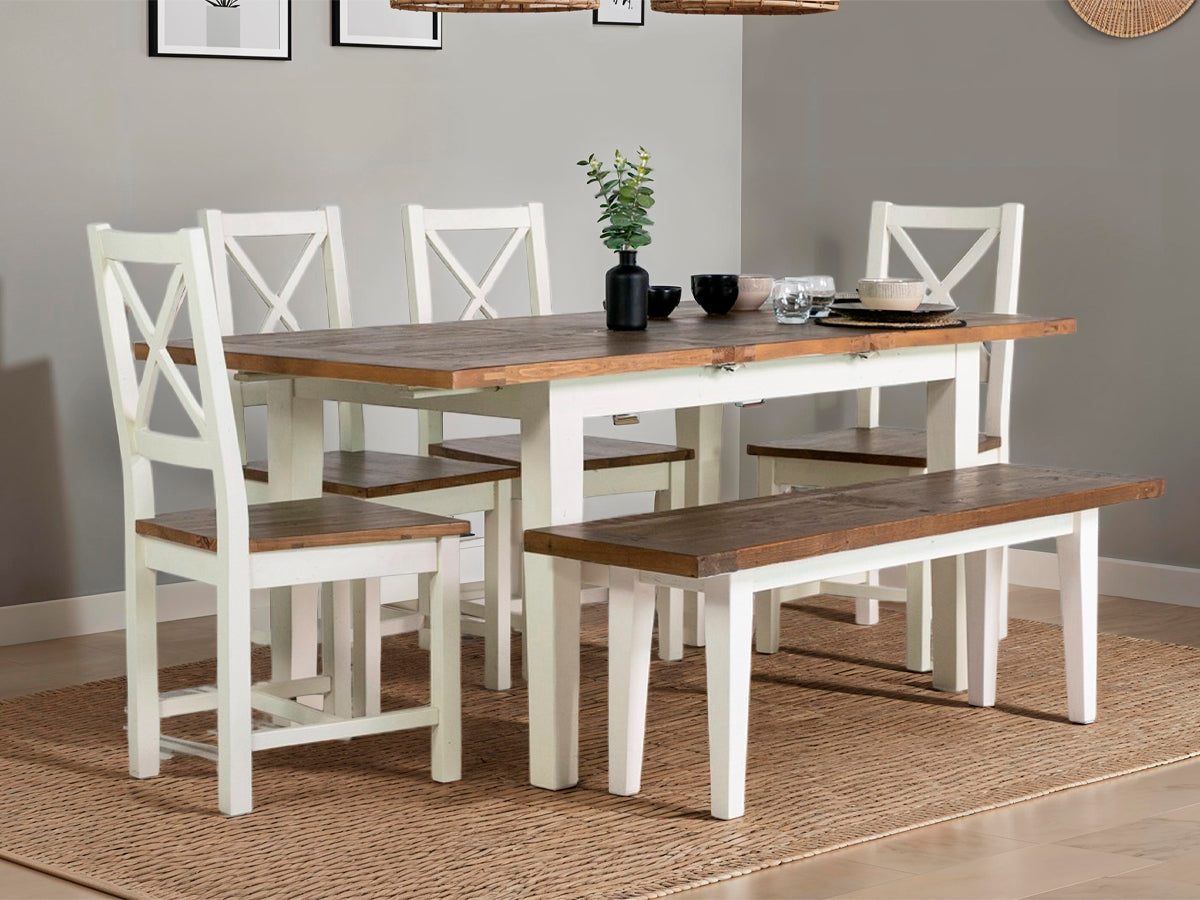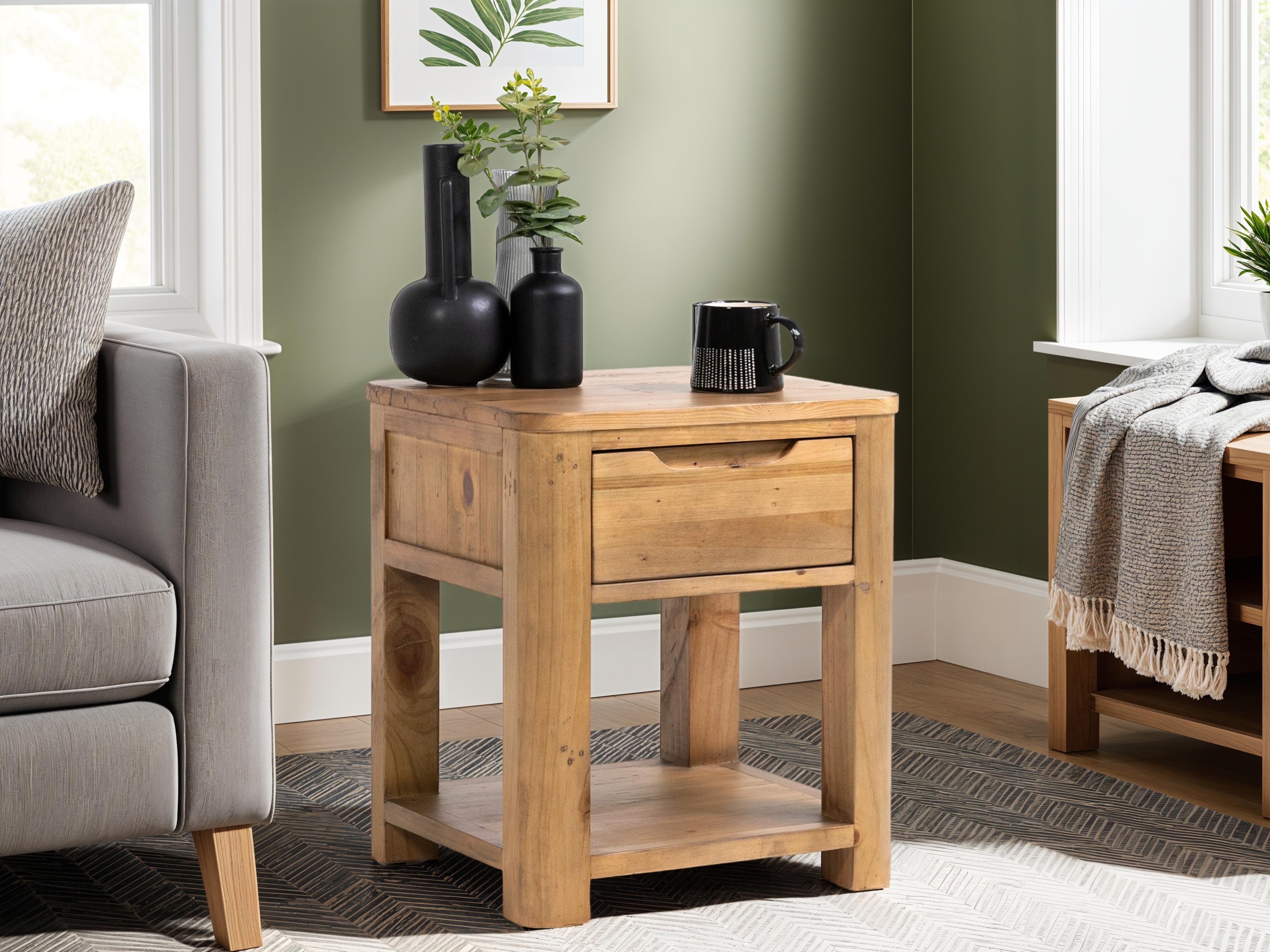In an age where ecological considerations are at the forefront of consumer choices, individuals are increasingly seeking sustainable alternatives in various facets of their lives.
The acquisition of reclaimed wood furniture emerges as a conscientious choice not only for its aesthetic allure but also for its significant contribution to the reduction of deforestation.
This essay endeavours to explore in detail the ways in which choosing reclaimed wood furniture actively promotes the preservation of our woodlands, fostering a more sustainable and ecologically responsible lifestyle.
-
Diminishing Demand for Freshly Harvested Timber:
The foremost manner in which the purchase of reclaimed wood furniture combats deforestation lies in diminishing the demand for freshly harvested timber. Traditional furniture production often relies on the felling of mature trees, contributing to the depletion of wooded areas. Reclaimed wood, sourced from aged structures, salvaged materials, or repurposed timber, offers a valuable alternative that requires no new logging.
By opting for reclaimed wood furniture, consumers convey a robust message to industries that there is a viable market for repurposed wood, thereby reducing the economic incentive for further deforestation. This shift in demand plays a pivotal role in preserving existing woodlands and mitigating the ecological impact of logging activities.
-
Conserving Biodiversity and Ecosystems:
Deforestation not only results in the loss of trees but also has profound consequences for biodiversity and ecosystems. Woodlands are intricate ecosystems that support a myriad of plant and animal species. The removal of trees disrupts these delicate balances, leading to habitat loss and the endangerment of numerous species.
When individuals choose reclaimed wood furniture, they actively contribute to the conservation of biodiversity by reducing the need for extensive logging. This decision helps maintain the intricate web of life within woodlands, ensuring the survival of various species and the overall health of our planet's ecosystems.
-
Preserving Carbon Sequestration Capacities:
Woodlands play a crucial role in sequestering carbon dioxide, a major contributor to climate change. Trees absorb carbon dioxide during photosynthesis, helping to regulate the Earth's climate by mitigating the greenhouse effect. Deforestation disrupts this vital process, releasing stored carbon back into the atmosphere.
Reclaimed wood furniture, sourced from existing timber, retains the carbon sequestered during the tree's lifetime. By choosing reclaimed wood over newly harvested timber, individuals actively contribute to the preservation of the carbon sequestration capacities of woodlands. This, in turn, aids in the global effort to combat climate change and reduce the overall carbon footprint.
-
Mitigating Soil Erosion and Water Runoff:
Woodlands play a crucial role in preventing soil erosion and regulating water runoff. The intricate root systems of trees anchor soil, preventing erosion and promoting water absorption. Deforestation disrupts this natural process, leading to increased soil erosion, decreased water retention, and a heightened risk of floods.
Choosing reclaimed wood furniture supports the conservation of woodlands and their inherent ability to maintain soil stability. By preserving the natural landscapes that reclaimed wood originates from, consumers indirectly contribute to the mitigation of soil erosion and the preservation of water resources.
-
Supporting Sustainable Forestry Practices:
The demand for reclaimed wood encourages a shift towards sustainable forestry practices. As consumers increasingly choose products crafted from reclaimed wood, industries are prompted to adopt responsible and eco-friendly methods. This shift supports initiatives such as selective logging, reforestation, and the promotion of biodiversity within managed woodlands.
By supporting sustainable forestry practices through the purchase of reclaimed wood furniture, individuals actively contribute to the long-term health and viability of woodlands. This holistic approach not only reduces deforestation but fosters a model of forest management that ensures the conservation of these vital ecosystems for future generations.
-
Elevating Consumer Awareness and Industry Standards:
Beyond the direct impact on deforestation, the choice to buy reclaimed wood furniture contributes to the elevation of consumer awareness and industry standards. As more individuals opt for sustainable alternatives, industries are compelled to adopt environmentally friendly practices. This shift not only benefits woodlands but also sets a precedent for responsible production and consumption.
Consumer choices, when aligned with sustainability, become a driving force in shaping industry practices. The demand for reclaimed wood furniture thus becomes a catalyst for positive change, influencing manufacturers to prioritise ethical and eco-friendly approaches.
In conclusion, the decision to purchase reclaimed wood furniture transcends mere aesthetic preference; it represents a powerful commitment to environmental sustainability and the reduction of deforestation.
By opting for materials that have already been harvested and repurposed, consumers diminish the demand for newly cut timber, thereby preserving woodlands, conserving biodiversity, maintaining carbon sequestration capacities, mitigating soil erosion, and supporting sustainable forestry practices.
As stewards of the Earth, individuals wield the power to make environmentally conscious choices that resonate beyond personal spaces, contributing to a more sustainable and harmonious coexistence with the natural world.
In the pursuit of a greener future, the decision to embrace reclaimed wood furniture becomes a symbol of environmental responsibility and a tangible step towards the preservation of our planet's invaluable woodlands.



















Leave a comment
This site is protected by hCaptcha and the hCaptcha Privacy Policy and Terms of Service apply.